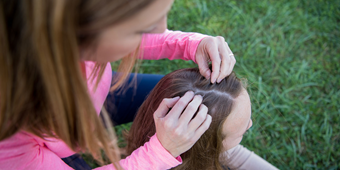Lifesaving Facts About Pneumococcal Disease

Answer a few questions and we'll provide you with a list of primary care providers that best fit your needs.
Pneumococcal disease. It’s a tongue twister of a label for a potentially serious illness caused by the bacteria Streptococcus pneumoniae.
Given its name, it’s easy to assume that this nasty bug causes pneumonia – and it does. But it can also cause a slew of other bacterial diseases, ranging from ear infections to bacterial meningitis.
Pneumococcal disease is very serious. According to the National Foundation for Infectious Diseases (NFID), invasive pneumococcal disease kills nearly 5,000 people in the U.S. each year, most of them 65 years of age or older. It is also the most common cause of invasive bacterial infection in children in the U.S.
You can prevent pneumococcal disease by learning more about who it affects, how it’s spread and how to avoid it.
Pneumococcus bacteria are spread by direct contact with the respiratory secretions (saliva or mucous) of an infected person.
Who’s at Risk?
Anyone can contract a pneumococcal disease, but those most at risk include:
- Children under the age of 2
- Children in group child care settings
- Older adults (65-plus)
- Those with certain chronic conditions, like asthma, diabetes, alcoholism, and lung, heart or liver disease
- People with conditions that weaken the immune system (HIV/AIDS, cancer or a damaged or absent spleen)
- Individuals with cochlear implants or cerebrospinal fluid (CSF) leaks (escape of the fluid that surrounds the brain and spinal cord)
- Cigarette smokers
- Residents of long-term care facilities, like nursing homes
- People travelling to developing countries or countries where the pneumococcal vaccine is not in broad use
How Is Pneumococcal Disease Spread?
Pneumococcus bacteria are spread by direct contact with the respiratory secretions (saliva or mucous) of an infected person. This usually happens through coughing, sneezing or other kind of close contact. The bacteria can invade the lungs, bloodstream, and the tissues and fluids surrounding the brain and spinal cord.
What Diseases Can It Cause?
The types of illnesses caused by pneumococcal bacteria are often determined by how the bacteria infect the body. These include:
- Middle ear infections
- Sinus infections
- Pneumococcal pneumonia (pneumococcal bacteria invade the lungs)
- Bloodstream infections (bacteremia)
- Bacterial meningitis (an infection of the membranes surrounding the brain and spinal cord)
What Are the Symptoms?

Symptoms of pneumococcal disease vary, depending on the age and health of the person infected, and the type of infection he has. Pneumococcal disease can develop rapidly and without warning. Some of the warning signs include:
- Fever
- Cough
- Shortness of breath
- Chest pain
- Stiff neck
- Confusion and disorientation
- Sensitivity to light
- Joint pain
- Chills
- Ear pain
- Sleeplessness
- Irritability
In severe cases, pneumococcal disease can cause hearing loss, brain damage and death.
How Can It Be Prevented?
You can defend yourself against pneumococcal disease by practicing good hygiene. The CDC recommends that you:
- Wash your hands often.
- Clean your hands with hand sanitizer (containing at least 60 percent alcohol) if soap and water aren’t available.
- Don’t touch your eyes, nose or mouth. If you need to touch your face, make sure your hands are clean.
- Cover your mouth and nose with a tissue or your sleeve (not your hands) when coughing or sneezing.
- Avoid close contact (kissing, hugging or sharing eating utensils or cups) with people who are sick.
A pneumococcal vaccine is recommended for those who are high risk (see Who’s at Risk? above.) Children through the age of 5 routinely receive a pneumococcal vaccine as part of their regular childhood immunizations.
What Do I Do if I Get Sick?
Pneumococcal disease is not your run-of-the-mill infection. If you’re sick and concerned that you may have pneumococcal disease, contact your nurse or doctor. Especially if you have a fever and/or the symptoms mentioned above.
Answer a few questions and we'll provide you with a list of primary care providers that best fit your needs.
Source: National Foundation for Infectious Disease; Centers for Disease Control




